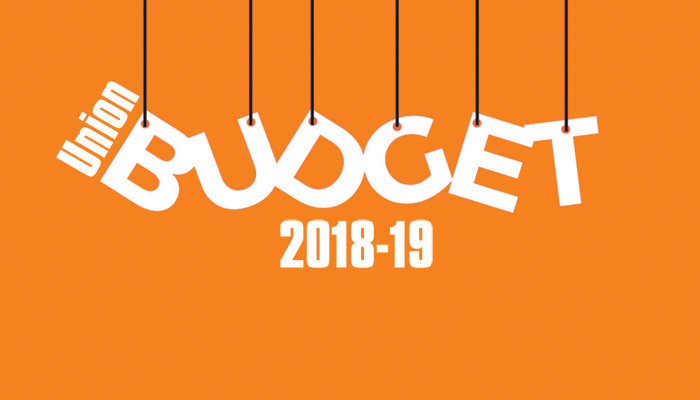
The textile industry has welcomed the budgetary allocation for textile sector of Rs. 7,148 cr for 2018-19 against Rs. 6,222 cr last year and the announcements pertaining to the MSME sector. In order to reduce the tax burden on MSMEs, the corporate tax has been reduced to 25 per cent who have reported turnover up to Rs. 250 cr will benefit textiles sector as it’s primarily in the MSME segment. This will give a big thrust to MSMEs to boost employment and economic growth.
The budgetary allocation for ROSL has been increased from Rs. 1,855 cr to Rs. 2,164 cr. This will help the exporters of made-ups and apparels as backlog will be cleared and working capital released. For ATUFS also, the allocation has also been increased from to Rs. 2,300 cr from Rs. 1,956 cr. This is a positive step and will help in clearing some of the committed liabilities under the TUF scheme.
Basic custom duty on silk fabric increased to 20 per cent from 10 per cent would save the industry from dumping from China. The industry post GST is facing higher imports post GST across the value added segment and was seeking increase in BCD across yarn and fabric – hence disappointed with this partial measure.
The MSP of all crops shall be made 1.5 times that of the production cost. This will benefit cotton farmers, however it will result in high inflation for the consumers of the country (as cotton constitutes 70 per cent of the consumption) and the downstream segments. This would also make our industry uncompetitive internationally.
Extension of fixed term employment for all segments, which was earlier only for apparel and made-up, and contribution of 12 per cent of the wages of the new employees in the EPF for first 3 years is welcome measure.
Other Programmes like Modi health Care will benefit textiles workers and cost of healthcare on workers. Construction of 9,000 km of national highways by end of FY 19 and Rs. 50 lakh cr for infrastructure development will enable smooth textile trade. National Livelihood Scheme of Rs. 5,750 cr will benefit textile sector in rural areas.
All these measures announced in the Budget will benefit the MSME sector. However, steps need to be taken to correct the imbalance caused by the GST. The imports post GST is hitting the whole industry. The industry has been asking the Government for increase in import duty across the value chain (yarn and fabric), and it is a big disappointment for the industry that industry’s recommendations have not been addressed.








